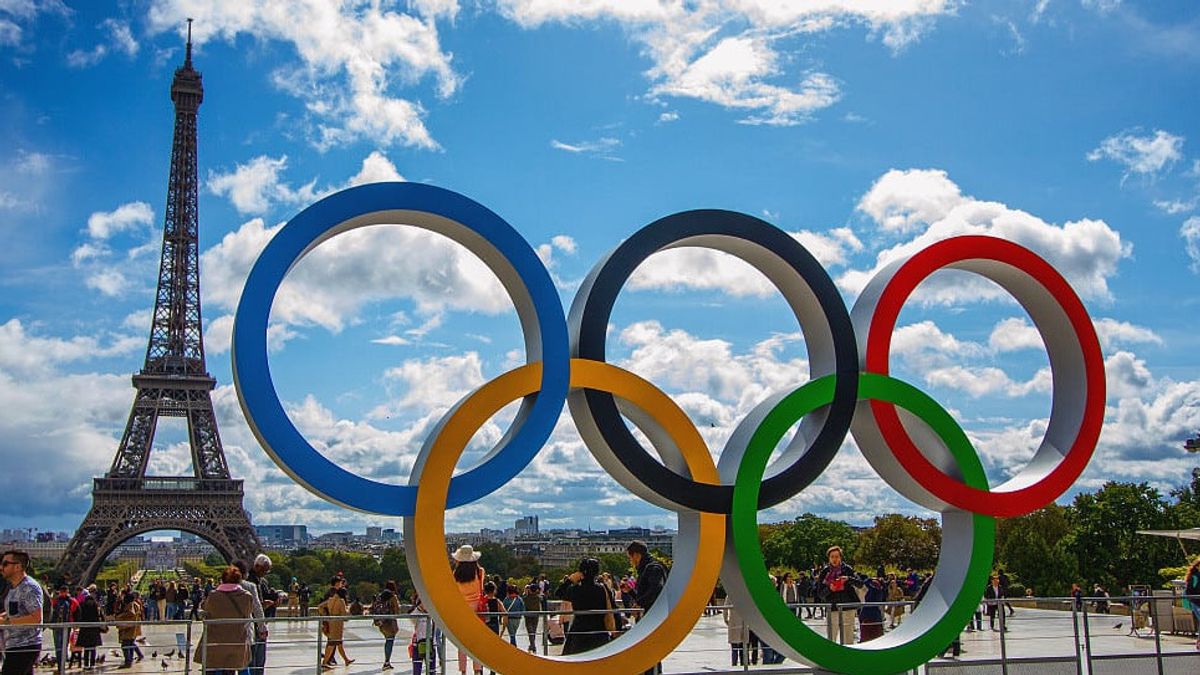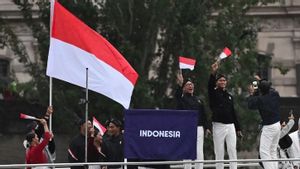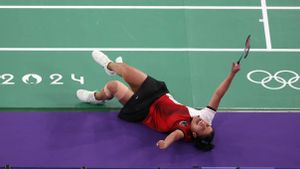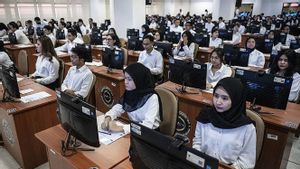JAKARTA The cost of organizing the Olympics continues to skyrocket, while in terms of economic benefits from the event is not clear. The 2024 Paris Olympics are a test of whether reform is necessary in the process of appointing the Olympic host.
The Olympics have grown very rapidly, since modernization was introduced at this world-spreading sporting event in 1896. But the modernization is not without risk. Since the mid-20th century, the costs required to hold the Olympics have soared.
The increase in costs is clearly a burden for the country appointed to host, while not offset by satisfactory income. This fact makes many economists argue that the benefits of hosting the Olympics are exaggerated, even useless!
Instead of profit, the state is burdened with additional debt. Not to mention that the obligation to care for sports facilities that have been built also requires a cost that is not cheap.
"It is clear to the cities of the organizers that in an old way the Olympics have only been a financial disaster. The cost is very expensive, but the hope of making profits is so small," said Victor totaling, professor of economics at the College of The Holy Cross, Worcester, Massachusetts, USA as quoted by CNN.
Being the host of the Olympics is expensive. Starting from the appointment process via bidding, great costs must be spent on interest. Currently, at least 100 million US dollars, around Rp. 1.6 trillion, as collateral to be able to participate in the bidding or auction of the organizers.
If you win and are elected as the organizer, the costs that will be incurred will certainly swell. The cost swelling is not even a big game, it can even reach 6 times the initial budget.
Menurut penelitian Alexander Budzier and Bent Flyvbjerg yang berjudul The Oxford Olympics Study 2024: Are Cost and Cost Overrun at the Games Coming Down?, Olimpiade Barcelona 1992 pada awalnya mengalokasikan anggaran sebesar 3 miliar dolar AS. Namun dalam tahap realisasi, anggaran meningkat menjadi hampir 12 miliar dolar AS.
Likewise with the 1996 Atlanta Olympics, Sydney 2000, Athens 2004, Beijing 2008, London 2012, Rio de Janeiro 2016, Tokyo 2020, and Paris 2024. The 2024 Paris Olympics, which are touted as the cheapest Olympics, allocated a budget of 4 billion US dollars, but the realization reached more than 8 billion US dollars. Even the cost of the 2028 Los Angeles Olympics is predicted to more than double the initial budget, which is about 5 billion US dollars.
"After the 2007 Mexican Olympics and 1972 Munich which were marked by deadly violence and the 1976 Montreal Olympics experienced tremendous cost overruns, almost no city was interested in hosting the 1984 Olympics," Andrew Zimbalist wrote, sports economist from Smith College at Northampton, Massachusetts, USA in his book Circuli.
The 1984 Olympics were supposed to be held in Tehran, Iran but were canceled and diverted to Los Angeles. Through the greatness of marketing, the 1984 Los Angeles Olympics panpel managed to involve the private sector in organizing without using much of the state budget. Los Angeles 1984 became the only Olympics to bring profits, with a profit of 215 million US dollars.
Another thing that has often been a nuisance in the Olympics since the bidding process until its implementation is corruption. One of the horrendous is the corruption in the 2016 Rio de Janeiro Olympics. The 2016 Rio Panpel was proven to bribe IOC members to choose the famous Brazilian city so that they host the Olympics.
The bribery made the Chairman of the Brazilian Olympic Committee, Carlos Arthur Nuzman, sentenced to 30 years in prison in 2021, after undergoing trial since 2017. Nuzman's corruption also dragged the former Governor of Rio de Janeiro, Sergio Cabral, who was sentenced to 10 years in prison. Cabral was charged with collaborating with Nuzman to bribe the IOC for the 2016 Rio Olympics.
The implementation of the Tokyo 2020 Olympics is currently still being raided, to find corrupt sides. To note, Tokyo 2020 ranks second in doping cases. There were 29 doping cases recorded at the Tokyo Olympics, and that is far below the 2012 London Olympics which reached 130 cases!
"Sports corruption covers many forms, ranging from match result settings, doping, disbursing the amount of workers' salaries, match ticket brokers, athletes who deliberately give up because they are related to gambling, or bribes related to the selection of a city as the host," said cap Porreca, professor of sports economy from Oxford Brooke's Business School in England.
"Sport is basically purity, something black and white. But in its evolution it becomes gray, leading to a very large business that eventually opens up opportunities for corruption," Porreca said again.
The IOC under the leadership of Thomas Bach has been trying to reform the Olympics to make them more friendly and cheap, through the 2020 Olympic Agenda policy. In essence, this reform is described as reducing bid fees, allowing hosts to take advantage of existing sports facilities without having to build new ones, requiring the use of independent auditors, and several other transparency steps.
However, some economists who researched the Olympics in terms of economics argue that the 2020 Olympic Agenda reforms are not enough. For example, he said the IOC should free members of developing countries from holding the Olympics.
"The IOC should award the rights to host the Olympics to rich countries, which obviously have more money than developing countries," said God.
Of course, the IOC must truly believe that the Olympics will have a sustainable effect on a country, both in the form of economy, facilities and infrastructure, as well as employment. Not as it is today, the Olympics are pushing for sustainable development just a discourse. What happened actually left the economic disaster everywhere.
SEE ALSO:
The English, Chinese, Japanese, Arabic, and French versions are automatically generated by the AI. So there may still be inaccuracies in translating, please always see Indonesian as our main language. (system supported by DigitalSiber.id)















